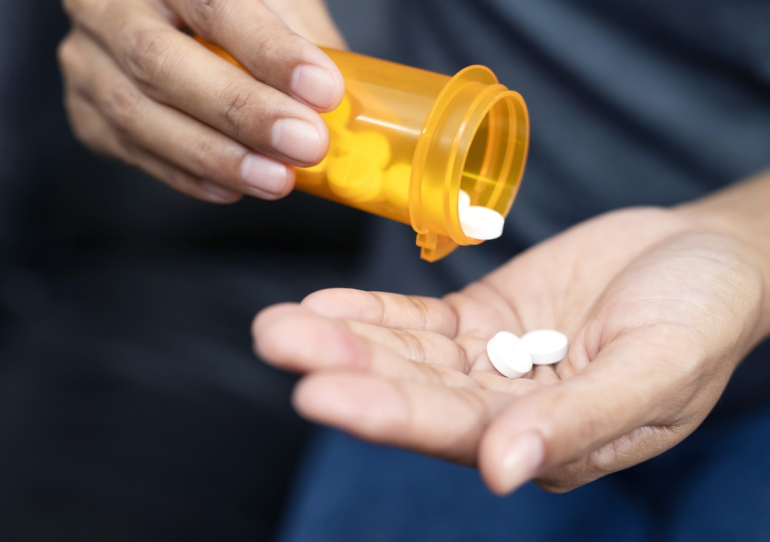For the first time in 20 years, two new classes of drugs have become available in Australia for the treatment of diabetic kidney disease, the most common cause of kidney failure. Both are extremely effective, safe, and relatively affordable. However, too few people with kidney disease are using these breakthrough drugs. We can only unlock these benefits if doctors, patients and the broader community have greater awareness of kidney disease, and the tools we have to fight it.
Chronic kidney disease (often abbreviated CKD) is a gradual loss of the kidneys’ ability to filter waste and excess fluid from the blood. It’s quite insidious. In Australia, kidney disease affects an estimated one in 10 people, but most won’t be aware they have it until it is quite advanced. At the point of diagnosis, many people are at risk of progressing to kidney failure.
For someone with kidney failure, their life expectancy is reduced by three quarters – equivalent to many cancers. As a clinician, I see patients experiencing a dramatically reduced quality of life – they feel weak and tired, and they can’t think clearly. Not to mention they’re at greater risk of a whole range of other conditions including heart disease, heart failure and stroke.
Treatment options remain limited. Dialysis hasn’t progressed much in the last 50 years, and involves being hooked up to a blood filtering machine for hours, several times per week. It costs the community about $100,000 per person, per year. Kidney transplantation remains the only cure for kidney failure, but it’s only suitable for some patients and the supply of donor organs is limited.
Read more: UNSW academics awarded over $4m for stroke and kidney disease research
So what we really need to do is prevent people with kidney disease from developing kidney failure. In the 90s, we started using blood pressure lowering drugs, especially ACE inhibitors and angiotensin receptor blockers. These helped, but only lowered the risk of kidney failure by about 20 per cent. Then for over 20 years, there were a huge number of clinical trials for different treatments trying to produce additional benefits, all of which were unsuccessful.
In the last few years, everything has changed. We have two new classes of drugs, SGLT2 inhibitors and finerenone. I was fortunate to be involved in developing these drugs, and many Australian researchers have led the way in identifying their benefits.
The SGLT2 inhibitors are probably the single most effective treatment we have, reducing the risk of kidney failure by 30 to 40 per cent. They have an array of additional benefits, including reducing the risk of heart failure and stroke, lowering blood pressure and reducing weight. And they’re remarkably simple to take, just a once daily tablet. SGLT2 inhibitors are available in Australia, and they cost the government about $50 per month per person, but they cost the individual less as they are reimbursed through the Pharmaceutical Benefits Scheme (PBS).
Another medication called fineronone is also approved in Australia and may soon by covered by the PBS, and there is a wide pipeline of other potentially kidney protective drugs currently being tested.
We’re at the beginning of a new era. We’ve spent decades trying to find effective treatments, and finally we’ve got them. Now, the challenge is getting the treatments to the people that need them.
The first hurdle is a lack of awareness about kidney disease in general. Currently, 1.5 million Australians are unaware that they are living with kidney disease, which can cause up to a 90 per cent loss of function before there are obvious symptoms. This is because people do not have their kidney function monitored, even when they are at higher risk of disease due to risk factors like diabetes or hypertension.
We need to change the paradigm. Our current healthcare system is focused on dealing with people who are sick – but we need to think about prevention, not just cure.
Read more: UNSW receives $4.7m to pursue health prevention research
So how do we detect kidney disease early before it’s causing serious symptoms? We need to inform our communities so that people know to get tested. We need screening in workplaces, communities, shopping centres even. There are devices now developed that can be installed in toilets that automatically test the urine – that’s the future.
It’s also important to point out that people living in areas with lower socioeconomic standing, or who identify as Aboriginal or Torres Strait Islander, have some of the highest rates of kidney disease in our country. For example, First Nations people are five times more likely to develop kidney disease and four times more likely to die from it. We know that people from our most disadvantaged communities are less likely to seek medical help, perhaps less likely to access the best treatments, and therefore are more likely to suffer the consequences. These communities must be a particular focus.
The second part of the challenge is raising awareness of the new weapons in our arsenal to fight kidney disease. Information about new treatments can take many years to trickle through the medical community. We need communication between governments, researchers and healthcare professionals to understand what these new tools are, and how they can be best used in the real world.
But we also need the community to know about the SGLT2 inhibitors, fineronone, and other future drugs. What I’d like to see is people with kidney failure, or predisposing conditions like diabetes, going to a doctor and saying: “I want to be considered for this treatment...tell me more about it.”
If we can increase the uptake of these breakthrough drugs in people with kidney disease, the scary rise we’ve seen in kidney failure over the last decades should not only plateau, but hopefully reduce. And that will lead to broader benefits for individuals, their communities, and our society as a whole.
MBBS PhD Melbourne, FASN, FRACP, FAHMS
Dean of the Faculty of Medicine & Health, UNSW Sydney
